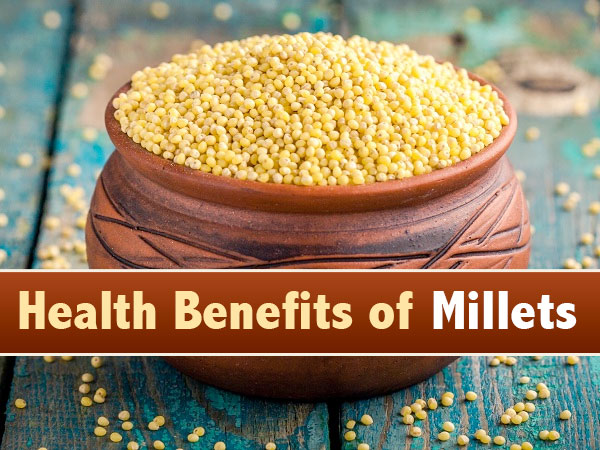Millets have been a staple food in many parts of the world for centuries. These small-seeded, drought-resistant grains have gained popularity in recent years due to their exceptional nutritional value and numerous health benefits. In this comprehensive guide, we will delve into the various aspects of millets, exploring their history, nutritional composition, and the numerous ways they contribute to a healthier lifestyle. We’ll also answer some frequently asked questions to provide a well-rounded understanding of this superfood.
Understanding Millets
1. What are Millets?
Millets are a group of small-seeded grains that belong to the Poaceae family. They are believed to have originated in Africa and Asia and have been cultivated for thousands of years. Some of the most common types of millets include pearl millet, foxtail millet, finger millet, proso millet, and barnyard millet.
2. Historical Significance
Millets have played a crucial role in human history. They were among the earliest domesticated crops, and ancient civilizations like the Indus Valley civilization and those in Africa relied heavily on millets for sustenance.
Chapter 2: Nutritional Profile of Millets
1. Macronutrient Content
Millets are known for their balanced macronutrient composition. They are a good source of carbohydrates, dietary fiber, and protein. They are also low in fat, making them a healthy choice for those looking to maintain or lose weight.
2. Micronutrients and Vitamins
Millets are rich in essential micronutrients, including iron, magnesium, phosphorus, and potassium. They are also a good source of B-vitamins, such as niacin, thiamine, and riboflavin, which play vital roles in maintaining overall health.
3. Antioxidants
Millets contain antioxidants like quercetin and curcumin, which help protect the body from oxidative stress and reduce the risk of chronic diseases.
Health Benefits of Millets
1. Weight Management
The high fiber content in millets promotes a feeling of fullness, which can aid in weight management by reducing calorie intake.
2. Heart Health
The low-fat content and potassium in millets help lower blood pressure and reduce the risk of heart diseases. The presence of antioxidants further contributes to heart health.
3. Diabetes Management
Millets have a low glycemic index, which means they release glucose into the bloodstream slowly. This makes them an excellent choice for individuals with diabetes to regulate blood sugar levels.
4. Digestive Health
The dietary fiber in millets supports healthy digestion by preventing constipation and promoting gut health.
5. Bone Health
Millets are rich in calcium and magnesium, essential minerals for maintaining strong bones and preventing conditions like osteoporosis.
6. Gluten-Free Option
Millets are naturally gluten-free, making them a safe and nutritious choice for individuals with gluten sensitivities or celiac disease.
Cooking with Millets
1. Millet Varieties and Culinary Uses
Different types of millets can be used in various culinary applications. Learn how to incorporate millets into your daily meals with delicious recipes and cooking tips.
Frequently Asked Questions (FAQs)
1. How do I cook millets?
Cooking millets is similar to cooking rice. Rinse the millets, add the appropriate amount of water, and cook until they are soft and fluffy. The cooking time may vary depending on the type of millet.
2. Are millets suitable for a gluten-free diet?
Yes, millets are naturally gluten-free, making them an excellent choice for those with gluten sensitivities or celiac disease.
3. Can millets help with weight loss?
Yes, millets are high in dietary fiber and protein, which can promote a feeling of fullness and aid in weight management.
4. Are there any side effects of consuming millets?
Millets are generally safe to consume, but like any food, they should be eaten in moderation. Some individuals may experience digestive discomfort if they consume large quantities of millets too quickly.
5. Are millets suitable for children and the elderly?
Millets are suitable for people of all ages. They are particularly beneficial for children as they provide essential nutrients for growth and development and for the elderly as they support bone health.
Conclusion
Millets are a true nutritional powerhouse with a rich history and a promising future in the realm of healthy eating. Whether you are looking to manage your weight, improve heart health, or simply enjoy a versatile and nutritious grain, millets deserve a place in your diet. With their numerous health benefits and culinary versatility, millets are a small but mighty addition to any meal plan.
In this guide, we’ve explored the origins and significance of millets, their impressive nutritional profile, and the multitude of ways they can contribute to your overall health and well-being. We hope this comprehensive resource has provided you with valuable insights into the world of millets and inspired you to incorporate them into your diet for a healthier lifestyle.
Remember, the journey to better health often begins with small changes in your diet, and millets are an excellent choice to start that journey.




